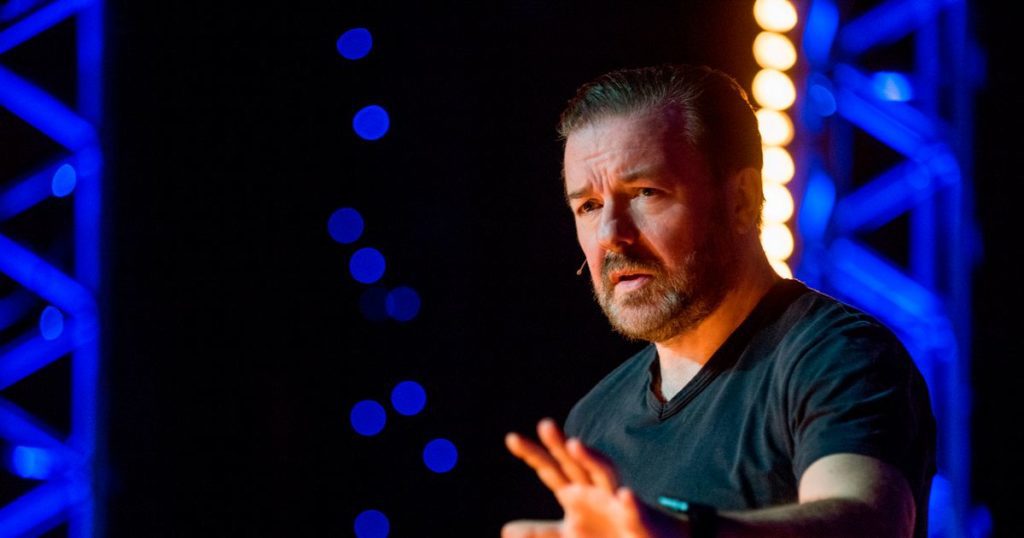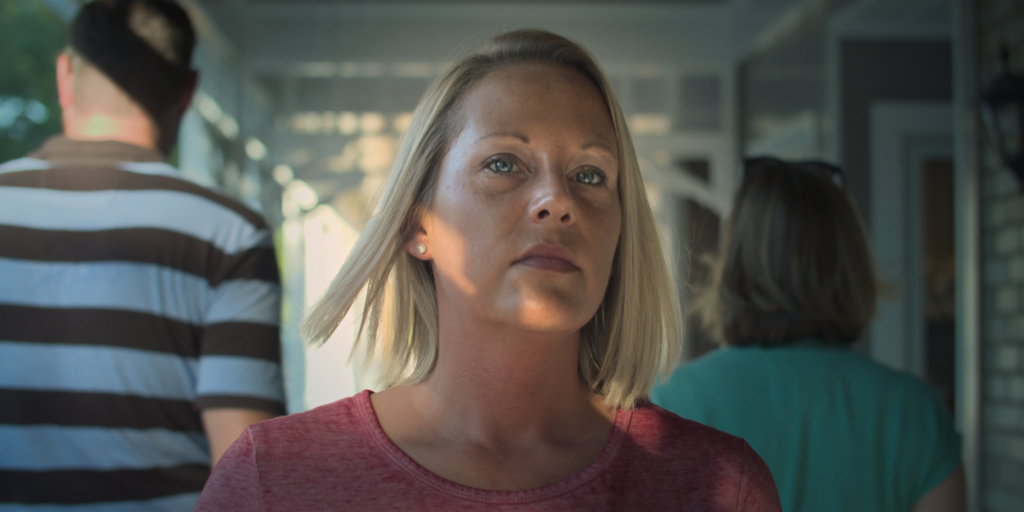Ricky Gervais recycles tired grievance nonsense in the odious bore SuperNature
Written by Ian Thomas Malone, Posted in Blog, Movie Reviews
There is a belief that free speech is under attack in comedy. Subjects such as transgender rights are apparently so taboo to talk about that many of the world’s highest-paid comedians spend most of their new specials saying things they’re forbidden to talk about. Ricky Gervais wants you to believe he’s been canceled for SuperNature, his new show that Netflix paid him millions of dollars to perform.
What did Netflix receive for their money and inevitable PR headache? Early in the special, Gervais returns to the subject of transgender women being rapists in public bathrooms, a topic that had started to lose its edge in 2016. For a man who talks about how comedy evolves, Gervais seems oddly stuck in the past regarding a cultural subject that even the Republican Party has lost interest in fighting, instead turning its attention to targeting mainstream medical care for trans children.
Gervais jokes that the 1%, namely his millionaire buddies are the new Rosa Parks. A thin layer of sarcasm can’t really hide the idea that he fundamentally believes this notion, that comedians are the real marginalized group. He dedicates extended riffs to the “cancellation” of renowned masturbator Louis C.K., who is so canceled that he recently won the Grammy Award for Best Comedy Album earlier this year, and Kevin Hart, the A-list martyr who stepped aside from hosting the Oscars in 2018 after refusing to reiterate regret for old homophobic Tweets.
It’s not particularly complicated to see why Gervais is so fascinated by trans people and social media criticism directed at anti-LGBTQ comedians. He doesn’t really have anything else to talk about. SuperNature touches on the differences between cats and dogs, AIDS, abortion, and religion, delivering observations that aren’t particularly original even by 1990s standards. Gervais’ brand of grievance politics exists as a shallow cover-up for the staleness of his material, a Trump rally masquerading as a comedy special.
Gervais loves to frame intersectionality as an “us vs. them” equation, suggesting that LGBTQ people want to ban anti-transgender jokes as a way to drag people like him down to build themselves up. He’s right on the objective, but intellectually dishonest with regard to the motives, denying the real-world harm of a society where it’s socially acceptable to write off an entire group of people as rapists, in the complete absence of any evidence to the contrary. Gervais’ logic only works if your brain is warped enough to believe that stereotypes have never actually affected anyone.
The bitterness of Gervais’ shrill delivery obfuscates a broader truth. Gervais has no moral obligation to be a nice guy. He’s built most of his career off of being the exact opposite. Comedy can be mean-spirited. No one is asking him to stand up on stage and be anything less than the person we expect from Ricky Gervais.
There’s something fundamentally sad about a man with nothing to strive for beyond a cheap cash grab. Far from the first mainstream comedian to dedicate chunks of his act to defending C.K. or Hart, Gervais’ dull blade simply lacks the edge he thinks it wields as he stands up on stage laughing at his own jokes. For a staunch atheist, he’s pretty solely tapping into the spiritual nature of right-wing grievance with his riffs on trans people that don’t bring anything new to the table. He’s not so much trying to entertain his audience as to get them to see him as a general on the front lines, an hour-long gratification of replacement theory nonsense. With millions in the bank, Gervais might get the last laugh, but the whole ordeal is a sad sight to behold.




















